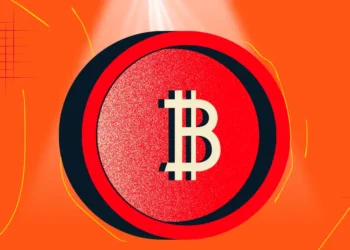Last updated on January 29th, 2025 at 11:08 am
Bitcoin’s trajectory has been extraordinary. From its obscure beginnings in 2009 to reaching over $100,000 in early December 2024, this digital currency has evolved from a tech curiosity into a globally recognized financial asset.
Its meteoric rise has drawn scrutiny not just from investors, but from regulators and central banks concerned about its implications for economic stability and social cohesion, especially in a democracy.
At the heart of this debate lies a critical question: Does Bitcoin pose a genuine threat to democratic systems and social stability, or are institutions like the European Central Bank (ECB) merely reacting defensively to financial innovation? This analysis examines Bitcoin as both a potential systemic risk and a disruptive force challenging traditional economic paradigms.
The Case for Bitcoin as a Systemic Risk to Democratic Societies
Economists at the European Central Bank (ECB) recently published a paper expressing concerns that Bitcoin is moving away from being used for transactions to becoming a risky investment. They argue that this shift could harm social unity because rising prices mostly benefit those who bought in early while leaving newer investors and non-holders at a disadvantage.
For instance, as early adopters reap significant gains and use them for luxury purchases, newer investors who join during speculative booms often face financial losses. This trend, they contend, can exacerbate economic inequality and risks creating resentment and social unrest, which could destabilize democratic societies.
The World Economic Forum has also expressed concerns that Bitcoin’s unregulated expansion could undermine state authority, particularly in regions where governments rely heavily on monetary policy to manage economic stability. For instance, countries like Ethiopia, Somalia, Burkina Faso, and the Democratic Republic of the Congo have seen Bitcoin’s pseudonymous nature facilitate capital flight, making it difficult for governments to stabilize their economies or address domestic crises effectively.
The Bank for International Settlements (BIS) claims that integrating cryptocurrencies like Bitcoin into traditional financial systems could have serious repercussions. The bank noted that these risks, which include currency substitution, fraud, and systemic instability, are amplified during periods of market volatility. For example, Bitcoin’s extreme price swings during events such as the FTX collapse and the U.S. banking crisis in 2023 demonstrated its potential to destabilize markets.
Historically, Bitcoin’s volatility has far exceeded that of traditional assets, often outpacing major stock indices like the S&P 500. Such volatility fuels speculative behaviour, leading to impulsive investment decisions that can disrupt financial stability. This instability could ripple across markets, affecting even those who do not directly participate in cryptocurrency investments.
To address these risks, some economists advocate for regulatory measures, including price controls and taxation on speculative gains, to prevent wealth concentration and support societal stability. While such measures are controversial, proponents argue that they are necessary to mitigate Bitcoin’s potential to exacerbate inequality and undermine democratic institutions.
Bitcoin as a Disruptive Innovation
Bitcoin’s rise mirrors the path of earlier disruptive technologies that faced initial scepticism. Innovations like the telephone, internet, and personal computers were once met with doubts. For example, people initially worried that phones could lead to privacy issues or unnatural communication, while others feared the internet would increase job risks or support illegal activities. Computers were seen as relevant only for large institutions. Over time, these technologies revolutionized society, showing that early doubts often give way to transformative change.
Supporters argue that Bitcoin’s ability to provide financial freedom and autonomy aligns with democratic principles. With 1.4 billion people lacking access to traditional banking, cryptocurrencies offer a path to financial participation through basic mobile devices. This democratization of finance could be particularly impactful in developing economies and regions with restrictive financial policies, where access to traditional banking services remains a significant barrier to economic participation.
Bitcoin’s potential to facilitate cross-border transactions with low fees further underscores its transformative capabilities. By eliminating intermediaries, Bitcoin enables direct peer-to-peer transfers, making it a valuable tool for remittances and international trade.
While critics emphasize Bitcoin’s volatility, advocates highlight its potential as an alternative to centralized financial systems. Traditional markets, too, are not immune to risk. The 2008 global financial crisis exposed the vulnerabilities of centralized institutions, demonstrating the need for diversified models. Bitcoin, operating outside conventional systems, offers an alternative that could complement traditional finance and reduce systemic risks. This duality makes Bitcoin a potentially stabilizing force in certain contexts, even as it introduces new challenges.
Marc van der Chijs, co-founder of the mining company Hut 8, emphasizes that early Bitcoin adopters took significant risks when the technology’s future was uncertain. Their willingness to invest in an unproven asset laid the groundwork for broader adoption. This dynamic, proponents argue, reflects a natural evolution of innovation, where initial scepticism eventually gives way to acceptance and integration.
The Broader Implications for Democracy
Bitcoin’s impact on democracy presents a complex duality. On one hand, it promotes financial independence and aligns with democratic values of individual freedom and empowerment. On the other hand, it challenges governments’ ability to maintain economic stability through monetary policy. Bitcoin’s global and pseudonymous nature further complicates regulation, making it difficult for governments to enforce tax compliance and combat illicit activities—some of the basic functions of the government apparatus in a democratic society.
This duality underscores the importance of thoughtful engagement with Bitcoin, as its potential to reshape financial systems comes with profound implications for democratic institutions and social stability.
The ultimate impact of the cryptocurrency, and by extension, others, on democracy and social stability will depend on how societies and governments adapt to this innovation. Success requires a balanced approach that leverages Bitcoin’s potential benefits—such as financial inclusion, technological innovation, and individual empowerment—while addressing its risks to economic stability and social cohesion.
The challenge lies not in choosing between wholesale adoption or outright rejection but in developing regulatory frameworks that harness Bitcoin’s advantages while mitigating its downsides. Policymakers must collaborate across borders to create cohesive strategies that address issues like wealth inequality, market volatility, and regulatory gaps. Public education initiatives are also essential to ensure that individuals understand the risks and opportunities associated with cryptocurrency. Additionally, fostering dialogue between industry stakeholders and regulators can help build a sustainable path forward.
Disclaimer: This article is intended solely for informational purposes and should not be considered trading or investment advice. Nothing herein should be construed as financial, legal, or tax advice. Trading or investing in cryptocurrencies carries a considerable risk of financial loss. Always conduct due diligence.
If you would like to read more market analyses like this one, visit DeFi Planet and follow us on Twitter, LinkedIn, Facebook, Instagram, and the CoinMarketCap Community.
Take control of your crypto portfolio with MARKETS PRO, DeFi Planet’s suite of analytics tools.”























